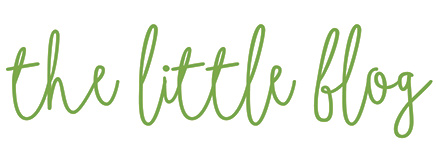At least, if we manage the spillover between the two worlds. There’s a lot we can transfer from our home to the the workplace and vice versa. In this article found at the Harvard Business Review website, Jelena Zikic explores how we can be better at home and at work if we transfer some attitudes and learnings from one place to the other.

Over the last 10 or 15 years those of us who work for organizations have gotten more and more comfortable talking about work-life balance as a business issue; about making the workplace more human, authentic, and compassionate; and about discussing work as something that deserves passion, meaning, even love.
And yet when we go home at the end of the day, how much of what we learn at work about prioritizing, communicating, and managing conflict gets left at the office? And even more important, when we go back into work the following morning, how much of what we’ve learned from our families about patience, empathy, and so on gets left behind?
Becoming a parent has made me realize just how absurd and wasteful this lack of spillover is. Who we are as parents matters to who we are at work. The skills we learn as we engage in parenting ought to transfer into our work, and vice versa.
As a researcher, I have approached my parenting role similarly to how I’ve approached research topics — with true passion and curiosity to fully understand all of its intricacies. This has meant reading parenting literature, talking to other parents (in my research mind I was “interviewing” them), and attending parenting workshops, all while noticing how effective (or not) my various approaches to parenting may be. Children, unlike many managers, are very quick and direct with feedback.
My research is ongoing, but below I describe three skills I’ve learned from parenting that have helped me in my work life:
Adapting to change. As a parent, I find myself constantly adapting to new situations. My “family team” constantly challenges me with new “parenting dilemmas,” just as things at work are never static. Our parenting journeys evolve as we see our children learn their first words, make their first steps, make friends, and face disappointments. The moment you feel you’ve got everyone on board and things seem to be going smoothly, the situation quickly changes; a new growth spurt or developmental milestone comes along, and suddenly new questions need to be addressed.
Dealing with this routine chaos makes us better at creating our own “dynamic capabilities.” Raising children teaches us how to become more adaptive to change — to cope with change while learning from it. Children challenge us to accept that stability is not normal and that developing the readiness to deal with uncertainty and accept new daily challenges will make us perform better as parents. As our children grow, we grow with them. In this process parenting allows us to reflect and adapt together with our children, and sometimes even learn from our mistakes. The same sets of skills are an asset in today’s workforce.
Respecting psychological safety as a universal human need. How often do you think about making your coworkers feel safe? If you’re like most people, it’s not that often. And yet as a parent how often do you think about making your kids feel safe? If you’re like most parents, it’s every day.
As parents, we seek to create an environment where children can learn and grow, challenge themselves and feel safe to explore, ask questions and share their fears and uncertainties. The more we’re able to create a positive, open family environment, the stronger our relationships with our children become.
In the same way, when we open our office door we’re faced with one of the hardest and most important management tasks: managing relationships. The more open and psychologically safe our team environment is, the better our team dynamics will be. The more we can adopt a nurturing, open mindset with our colleagues or protégés, the stronger the bonds we build. As we strive to make our children resilient and capable of finding their own solutions, we can do the same with our team members. This means creating a culture at work where psychological safety comes first, where your coworkers feel comfortable and willing to share their concerns, needs, and ideas.
Self-reflecting and continually improving. Becoming a parent is one of the toughest jobs we can undertake. The “hours” are 24/7 yet it is often our most gratifying role. As in any role that motivates and challenges us, we want to be good at it. But while we may question our skill at parenting or at work, we may have trouble getting past self-doubt.
Like leadership coaches, parenting experts would encourage us not only to question our parenting approaches but also to learn from our mistakes and our children’s feedback. Authentic parenting, like authentic leadership, invites us to be true to our values, open to feedback, experts at active listening, and willing to experiment with new approaches.
This last point is what the “positive spillovers” idea rests upon. For positive spillovers between parenting and work to happen, we must reflect on how we operate and who we are in each domain. If we don’t question our existing ways of doing things, we can’t learn, and we can’t improve.
Our children are probably our best and most honest judges; they provide the most direct, trusting performance evaluation we’ll ever get. We can reflect on what they teach us to be better leaders, and we can use what we learn at work to be better parents.
Source: we’ve found this article at hbr.org.
About the author:
Jelena Zikic is an Associate Professor at York University. In her research and practice, she explores a combination of career and life transitions of diverse populations.
